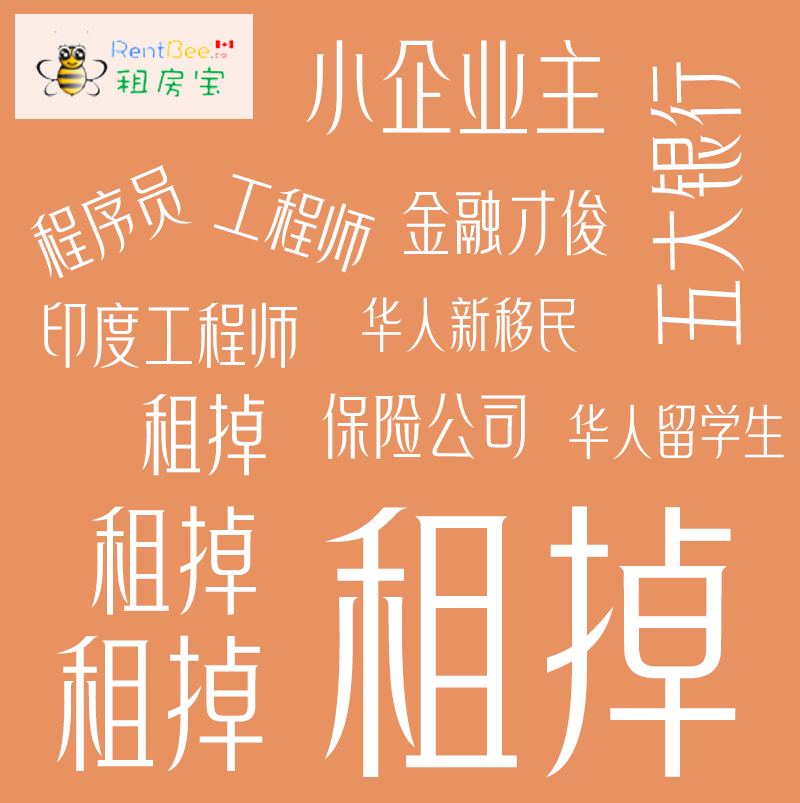幸运李餐厅所有人之一阿丽尔·哈斯佩尔说,“我们从来没有想过要做一些针对华人社区的事情。” GABRIELLA ANGOTTI-JONES FOR THE NEW YORK TIMES
Arielle Haspel, a Manhattan health coach with a sleek social media presence, wanted to open the kind of Chinese restaurant, she said, where she and her food-sensitive clients could eat. One where the lo mein wouldn’t make people feel “bloated and icky” the next day, or one where the food wasn’t “too oily” or salty, as she wrote in an Instagram post a few weeks ago.
阿丽尔·哈斯佩尔(Arielle Haspel)是曼哈顿的一名健身教练,在社交媒体上有着光鲜亮丽的形象,她说想开家中餐馆,就是她和她那些对食物敏感的学员可以去吃的那种。那里的捞面不会让人在第二天觉得“腹胀又恶心”,食物不会像她几周前在一篇Instagram帖子上写的那样“太油”或太咸。
She chose a name for her new restaurant, Lucky Lee’s, that sounded stereotypically Chinese, even though she and her husband, Lee, are not Asian. She decorated the restaurant with bamboo and jade touches, and designed her logo with a chopstick-inspired font.
她给自己的新餐厅取名Lucky Lee’s(幸运李),听上去是那种俗套的中餐馆名字,尽管她和丈夫李先生都不是亚洲人。她以竹子和玉作为餐厅的装饰,餐馆的标识采用的是一种受筷子启发的字体。
And then, quite predictably, she was flamed on the internet for it.
然后,不出所料,她在互联网上遭到炮轰。
The uproar over Lucky Lee’s, which opened on Monday, has become the latest front in the debate over cultural appropriation and cultural arrogance, following controversies involving, among many others, Dolce & Gabbana and Miley Cyrus.
周一开业的幸运李餐厅引发的轩然大波,已成为文化挪用和文化傲慢骂战的最新前线。此前,包括杜嘉班纳(Dolce & Gabbana)和麦莉·赛勒斯(Miley Cyrus)等等都卷入过类似的争议。
In an interview on Thursday, Ms. Haspel said that she had good intentions, and that she was shocked when she was portrayed by critics on social media as the latest in a string of white restaurateurs who have promoted their Asian cuisine by labeling it as superior to food made by actual Asians.
哈斯佩尔周四在接受采访时说,自己并无恶意,当她看到社交媒体上的批评者把她描绘成一系列白人餐厅老板中的最新一员,为了推广打着比亚洲人做得亚洲菜高级的旗号时,她感到震惊不已。
“We are so sorry,” Ms. Haspel said. “We were never trying to do something against the Chinese community. We thought we were complementing an incredibly important cuisine, in a way that would cater to people that had certain dietary requirements.”
“很抱歉,”哈斯佩尔说。“我们从来没有想过要做一些针对华人社区的事情。我们认为自己做的是对一种极其重要的菜式的补充,以满足那些有特定饮食需求的人。”
Within a day of Lucky Lee’s opening in the Union Square area, Asian-Americans castigated her on social media. Yelp temporarily disabled its listing because of an “unusual activity alert.” And a stream of food writers posted about how Ms. Haspel’s decision to brand her Chinese food as “clean” was dredging up stereotypes that were hurtful to Chinese-Americans, not to mention tone-deaf.
幸运李餐厅在联合广场地区开业一天不到,就在社交媒体上遭到亚裔美国人的严厉批评。由于“异常活动警报”,Yelp之前暂时下架了这家餐厅的信息。还有许多美食作家发贴,说哈斯佩尔决定把她的中餐贴上“干净”标签,是在重新唤起伤害华裔美国人的刻板印象,更别说不敏感了。
“Ohhhh I CANNOT with Lucky Lee’s, this new ‘clean Chinese restaurant’ that some white wellness blogger just opened in New York,” MacKenzie Fegan, a food writer, said on Twitter. “Her blog talks about how ‘Chinese food is usually doused in brown sauces’ and makes your eyes puffy. Lady, what? #luckylees”
“哦,我不能跟幸运李合作,这家新的‘干净的中餐馆’是某个白人健康博主刚刚在纽约开的,”美食作家麦肯齐·费根(MacKenzie Fegan)在Twitter上说。“她的博文里说,‘中餐往往泡在棕色酱汁里’,会让你的眼睛浮肿。夫人,你在说什么?#luckylees”
This week, Ms. Haspel, 36, deleted Instagram posts that could be seen as culturally insensitive, such as the one about feeling icky after eating lo mein. She decided against using a decal that said “Wok in, Take Out” that she planned to put on the window.
在这周,36岁的哈斯佩尔删除了Instagram上一些可能被认为存在文化漠视的内容,比如说吃了捞面后感到恶心。她原本打算在餐厅的窗户上贴“Wok in, Take Out”(“入锅,外卖”。“入锅”取“入内”[Walk in]的谐音。而此处的锅特指中餐特有的炒锅。——译注)这样的字眼,现在也放弃了。
“We have been listening and learning, and we have been making changes and we will continue,” she said. “Shame on us for not being smarter about cultural sensitivities.”
“我们一直在倾听和学习,而且一直在做出改变,我们会继续这样做,”她说。“我们对文化如此不敏感是可耻的。”
Ms. Haspel’s blog, and her food videos, promote something she calls “clean eating,” which to her, means things like: eating organic, avoiding additives and using olive oil instead of canola.
哈斯佩尔的博客和美食视频倡导其所谓的“干净饮食”,对她来说,这意味着吃有机食品,避免添加剂,用橄榄油代替芥花油。
“Clean eating” is not related to a particular type of cuisine. Instead, she explained in one online video, it is “all about finding a healthier alternative to your favorite indulgent food.”
“干净饮食”与特定的菜系无关。相反,她在一段网络视频中解释说,这是“找到一种更健康的东西,来替代你最爱吃的黑暗料理”。
“I love health-ifying bad food so you can treat yourself, guilt-free,” she said in another cooking video.
她在另一段烹饪视频里说:“我喜欢那些做过健康处理的坏食物,这样你就可以毫无愧疚地享受了。”
She tried to explain her “clean food” concept in an Instagram post earlier this week, but it didn’t stop the onslaught of criticism. Her detractors said not understanding she was being offensive was not a good excuse. They said that when she decided to open a Chinese restaurant, she had a responsibility to learn more about the culture of the food she was appropriating.
本周早些时候,她在Instagram上发贴,试图解释她的“净食”概念,但并没有阻止批评的浪潮。贬斥她的人说,她不理解自己的行为是无礼的,这一点不能成为借口。他们说,当她决定开一家中餐馆时,她有责任多了解她所挪用的这种食物背后的文化。
“Where she is coming from is a very dark place, and it’s a very sensitive place in the hearts of Chinese people,” said Chris Cheung, the owner of East Wind Snack Shop, an acclaimed dumpling restaurant in Brooklyn. Particularly insulting, he said, was the connotation in her marketing that other Chinese food was unhealthy or unclean, which is a stereotype that Chinese restaurateurs have been fighting for decades.
“她的出发点非常黑暗,这在华人心目中是个很敏感的东西,”布鲁克林一家很受好评的饺子店东风小吃店(East Wind Snack Shop)的老板克里斯·张(Chris Cheung)说。他说,尤其令人感到受侮辱的是,她在营销中暗示其他中餐不健康或不干净,这是中餐馆老板几十年来一直反对的一种刻板印象。
“She mentions that every time she goes to eat Chinese food, she’s bloated,” he said. “Well, I don’t know where she is going to eat Chinese food, but that doesn’t happen to me or anyone else who I know when they eat it.”
“她说,每次去吃中餐,她都会浮肿,”他说。“嗯,我不知道她去哪里吃的中餐,但我和我认识的任何人吃中餐的时候都不会这样。”
东风小吃店老板克里斯·张是土生土长的纽约人,在华埠长大。GABRIELLA ANGOTTI-JONES FOR THE NEW YORK TIMES
Doron Wong, chef and partner of Northern Tiger, a Chinese restaurant in the financial district, said: “I think she didn’t do her research and was kind of stereotyping everybody, which I found a little bit unfair, but at the same time, very entertaining. I see it as she was trying to come in at a different angle.”
金融区中餐馆北虎(Northern Tiger)的大厨兼合伙人多伦·黄(Doron Wong)说:“我觉得她没有做调查,用刻板印象来看待一切,我觉得有点不公平,但同时也很有趣。我看到她试图找一个不同的切入点。”
He added that a new generation of Chinese-American chefs were already using ingredients that were gluten-free, organic and non-GMO, which she probably should have known. “We are very aware of what we are putting into other people’s bodies,” he said.
他补充说,新一代华裔美国厨师已经在使用无麸质、有机和非转基因食材,这一点她可能早就应该知道。“我们非常清楚我们在给别人吃什么,”他说。
Ms. Haspel is the latest white chef to be accused in recent months of appropriating Asian cultural tropes in insensitive ways.
近几个月有几名白人厨师被指以有失敏感的方式挪用亚洲文化修辞,哈斯佩尔是最新一例。
In November, Andrew Zimmern, a Travel Channel food host, opened a restaurant near Minneapolis called Lucky Cricket, which he said in an interview would save Midwesterners from having to eat Chinese food he described with an expletive; he later apologized. In London, restaurateur Gordon Ramsay will soon be opening an “authentic Asian eating house” called Lucky Cat.
去年11月,旅游频道(Travel Channel)美食节目主持人安德鲁·齐默恩(Andrew Zimmern)在明尼阿波利斯附近开了一家名为幸运板球(Lucky Cricket)的餐厅,他在一次采访中说,这家餐厅可以让中西部人不用再吃中餐——他用了脏话来描述这种菜肴。后来他为此道歉。在伦敦,餐馆老板戈登·拉姆齐(Gordon Ramsay)不久后要开一家名叫幸运猫(Lucky Cat)的“正宗亚洲餐厅”。
“Lucky is becoming code for something awful,” Cathy Erway, a food writer of Taiwanese heritage, said in a tweet.
台湾传统美食评论家凯茜·埃尔韦(Cathy Erway)发推说:“幸运正在成为暗语,表示某种糟糕的东西。”
In the interview, Ms. Haspel defended her concept and menu, while acknowledging some errors in presenting them. She said her decision to brand her lo mein “Hi-Lo Mein,” was just meant to be “cute,” not to denote its superior quality. The décor, she said, was inspired by the 1930s textile designs of her grandmother, and was authentic to her own Jewish-American family traditions.
在采访中,哈斯佩尔为自己的理念和菜品辩护,同时承认自己在展示菜品时有一些错误。她说她给自己的捞面取名为“高捞面”(Hi-lo Mein,亦可理解为“高低面”。——译注),只是为了显得“可爱”,并不是说它的品质优越。她说,店里的装饰灵感来自她祖母在1930年代的纺织品设计,是她自己的犹太裔美国家庭传统的真实写照。
On Wednesday, Lucky Lee’s, on University Place between 10th and 11th Streets, was busy. The patrons were a mix of people curious about the controversy, supporters of Ms. Haspel and others who had just walked in and had no idea about the backlash.
周三,位于10街和11街之间的大学广场的幸运李餐厅非常热闹。顾客中有对这场争议感到好奇的人,有哈斯佩尔的支持者,也有碰巧走进来、对争议毫无概念的人。
对哈斯佩尔来说,“干净饮食”意味着吃有机食品,避免添加剂,用橄榄油代替菜籽油。GABRIELLA ANGOTTI-JONES FOR THE NEW YORK TIMES
The menu is filled with health-oriented takes on Chinese-American classics, such as baked General Tso’s chicken that comes with kale salad, coconut steamed rice and sautéed string beans. The style is fast casual, with counter ordering, and prices for most items range between $11 and $18.
菜单上有各种以健康为导向的中美经典菜肴,比如左宗棠烤鸡配羽衣甘蓝沙拉、椰子饭和炒四季豆。风格是休闲快餐,有柜台订购,大多数商品的价格在11美元到18美元之间。
“Our entire menu is gluten-free, dairy-free, wheat-free, corn-free, peanut-, cashew- and pistachio-free,” the menu states. “We use non-GMO oil, and never refined sugar, MSG or food coloring.”
“我们的全部菜品无麸质、无奶、无小麦、无玉米,无花生、腰果和开心果,”菜单上写道。“我们使用非转基因油,绝不使用精炼糖、味精或食用色素,”
“We seek to be able to offer food that some people are not able to eat otherwise,” Ms. Haspel said.
“我们希望能够提供对某些人来说在别的地方吃不到的东西,”哈斯佩尔说。
Jing Sun, who is Chinese-American, came with two friends from a technology firm in SoHo to check out the food. They enjoyed it, particularly the kale salad and charred broccoli. “I support the concept,” Ms. Sun said. “I think it’s pretty regrettable the way she communicated about it, though.”
华裔美国人孙静(音)和两个来自休南区一家科技公司的朋友来这里品尝食物。他们很喜欢,尤其是羽衣甘蓝沙拉和烤西兰花。“我支持这个概念,”孙静说。“不过,我认为她沟通的方式相当令人遗憾。”
She added: “I don’t think that the stakes should be high enough for the restaurant to fail. But I hope she learns something about the history and cultural context she’s working in as a result of the backlash.”
她补充道:“我认为这事不至于让这家餐厅倒闭。但我希望通过这件事,她能多了解到一些她所从事工作的历史和文化背景。”
本文最初发表于2019年4月12日。
作者:Sharon Otterman
翻译:晋其角、杜然
订阅时报中文每日简报
订阅后,无需科学上网,即能收到我们每个工作日为你发送的简报邮件。中文简报将为你介绍《纽约时报》当日的重点英文报道,并推荐部分已被译成中文的精选内容。
订阅方式:在下方留言你的邮箱,或是发送邮件至cn.letters@nytimes,告知我们你希望用于接收订阅邮件的邮箱,我们将为你在后台进行订阅。
下载客户端
安卓:全新安卓客户端可通过Google Play下载安装,或【在浏览器内】打开链接,下载安装包:http://t.cn/R1PQnvd 。
iOS:iOS客户端版本更新,推出搜索等功能。
苹果手机用户可在非中国大陆地区应用商店下载,也可发送邮件至cn.letters@nytimes.com获取新版客户端,或私信时报君获取下载方式。
感谢各位读者的关注和支持!
更多文章:
《纽约时报》推出新账号了~
欢迎关注@NYT每日一词,
和我们一起,
探索新闻报道中的有趣词汇。
声明:该文观点仅代表作者本人,加国头条 属于信息发布平台,加国头条 仅提供信息存储空间服务。











0 Comments
Leave A Reply